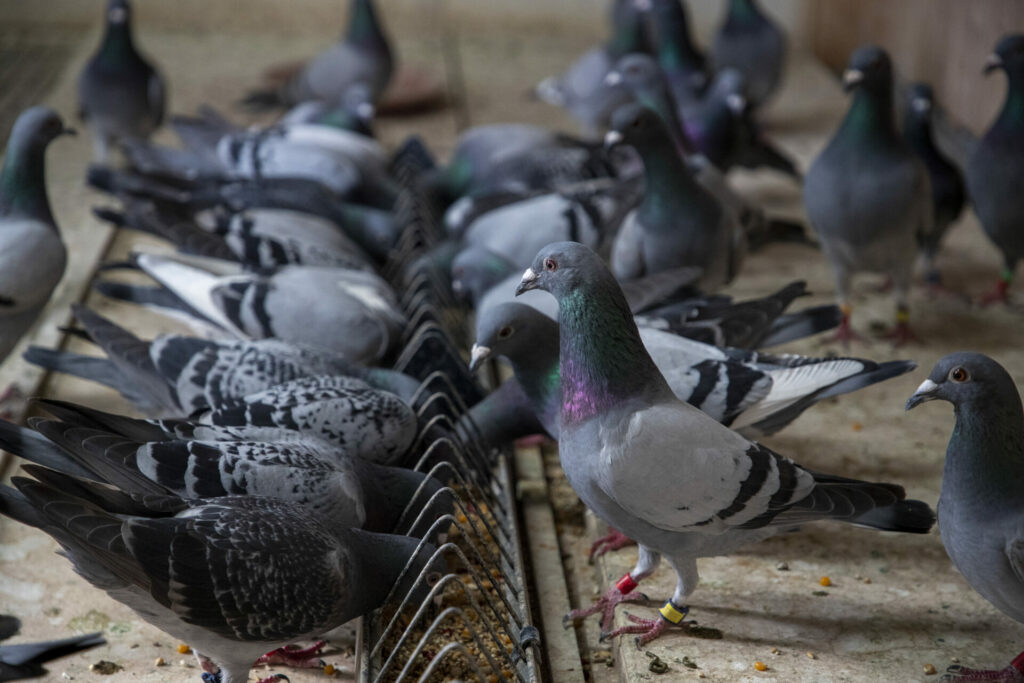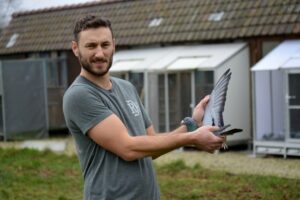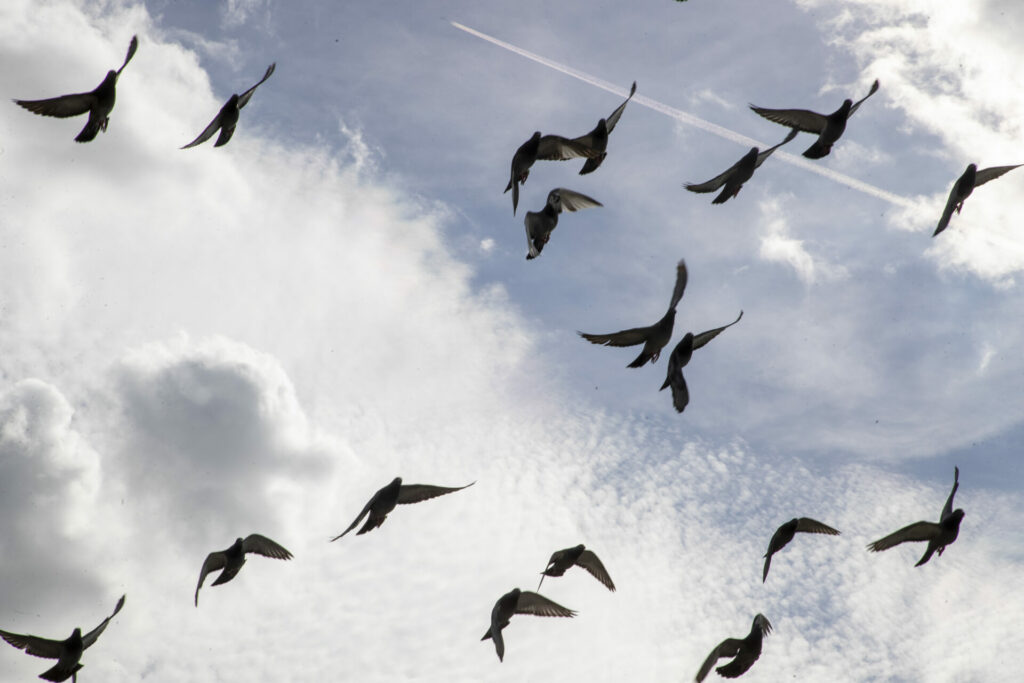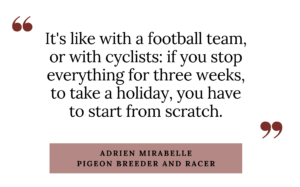There is a common misconception that pigeon rearing and racing is an old person’s sport. Adrien Mirabelle, however, is among the best in his discipline in Belgium and at 34, he has made a name for himself in the world of pigeon racing.
Mirabelle has already won several championship titles in Belgium with his best "recruits." It was his grandfather who passed on the pigeon racing bug to him at an early age. At the time, Mirabelle's grandpa and his friends embodied a bit of the cliché that we can have of the pigeon fancier: a dusty old coat, a peaked cap, hours spent in the local pub or on their allotments awaiting the return of their champion birds.
Mirabelle, however, is part of a new generation of pigeon fanciers, in shorts, baseball caps and sporting tattoos. He would also like to see more young people take an interest in the discipline in Belgium, as is the case in other countries across the world.
The art of the craft
At the back of his house, he raises several hundred pigeons. About 60 are able to participate in the competitions. They benefit from "smart" housing, with a treadmill system to recover droppings. For the residents, comfort is maximum, and makes the work of cleaning up easier as well.
At around midday, he waits for the first of his birds to return. The bird left that morning at 10:00 from the south of the Paris region. The first mistake that novices make is to believe that the contest takes place in a single day.
"Oh no, the pigeons are taken several days before to the starting point of the competition," Mirabelle said.
His pigeons had been kept at the start along with hundreds of other competitors. The owners, the breeders, stay in their own country, near their dovecotes, waiting to receive the birds.
In the field of pigeon racing, computer science has made serious progress.
"The pigeons are now chipped," he said. "This makes it possible to follow in real time the progress of the competition, and to identify the arrivals, as and when."
Dovecotes are equipped with plates, which act as "scanners" of chips. When the pigeon walks through the door of the dovecote, a small beep sounds. It is in a way an "acknowledgement of receipt." The sign that the pigeon has returned, and that its arrival is validated for the competition. It is still necessary that the bird agrees to return, which is not always the case.
The way home
Eventually, the first pigeon returns. But how? Many theories circulate to answer the age-old question.
"Pigeons are thought to locate through terrestrial magnetism. That they have, in a way, a sixth sense," Mirabelle said. "They are also trained to find their way around and find their dovecote. I think that by dint of training, they find landmarks: canals, highways for example."

Pigeons flying around the the infrastructure of a pigeon keeper, in Wichelen, Tuesday 02 August 2022. Last weekend, 20,000 racing pigeons went missing after an international race from Narbonne, France. Pigeon racing is the sport of releasing specially trained homing pigeons, which then return to their homes over a carefully measured distance. The time it takes the animal to cover the specified distance is measured and the bird's rate of travel is calculated and compared with all of the other pigeons in the race to determine which animal returned at the highest speed. Keeping, breeding and 'playing' with race pigeons is a popular hobby in Belgium. Belgian breeders are well known for the high performance of their animals. Credit: Belga / Nicolas Maeterlinck
Perhaps the technique of enforced, temporary separation plays a role. In the dovecote, males live apart from females all week. But when they return from the competition, they can be reunited.
"But frankly, I think they prefer to find their territory rather than their companion," Mirabelle said.
Related News
- World’s most expensive pigeon is from Antwerp province
- Brussels' pigeon problem: Avian contraceptive pill aims to curb the population
- Catching and euthanising pigeons will no longer be allowed in Brussels
As well as his own pigeons, Mirabelle has to contend with some who follow his birds to the dovecote from other breeders, or wild pigeons who are just curious.
Waiting for everyone to return can be a long and frustrating business.
"It's very tiring. Every July, I'm at the end of my rope," Mirabelle said. "It's like with a football team, or with cyclists: if you stop everything for three weeks, to take a holiday, you have to start from scratch."
A wealthy endeavour
Apart from competition and pigeon breeding, he works as an intermediary in the pigeon sector, buying and selling pigeons on behalf of, mostly wealthy, clients. The firm he works for organises online auctions, which bring together pigeon fanciers from all over the world.
"It's amazing how it has gone international," Mirabelle said. "We now see countries like Senegal, Iran, India on the market."
Auction records far exceed one million euros. Mirabelle has several times negotiated "six-figure sales" for customers in the Middle East or China, which he said makes pigeon racing a talking point wherever in the world you go.

Adrien Mirabelle with a pigeon. Credit: pipa.be
But, at the end of the day, it is the racing and the prestige that excites Mirabelle.
"To see the pigeons coming... I find it beautiful," he said. "You become addicted a little bit too, it's normal. This is your reward."
But there are downsides, such as the loss of a pigeon. Mirabelle said he has done 15 to 20 round trips in a day to look for a bird. Climate change scares him too because he sees how much his birds suffer from it.
"They don't sweat... so, you see them coming back from the races with their beaks open, they are really not well," he said. "It hurts the heart."


